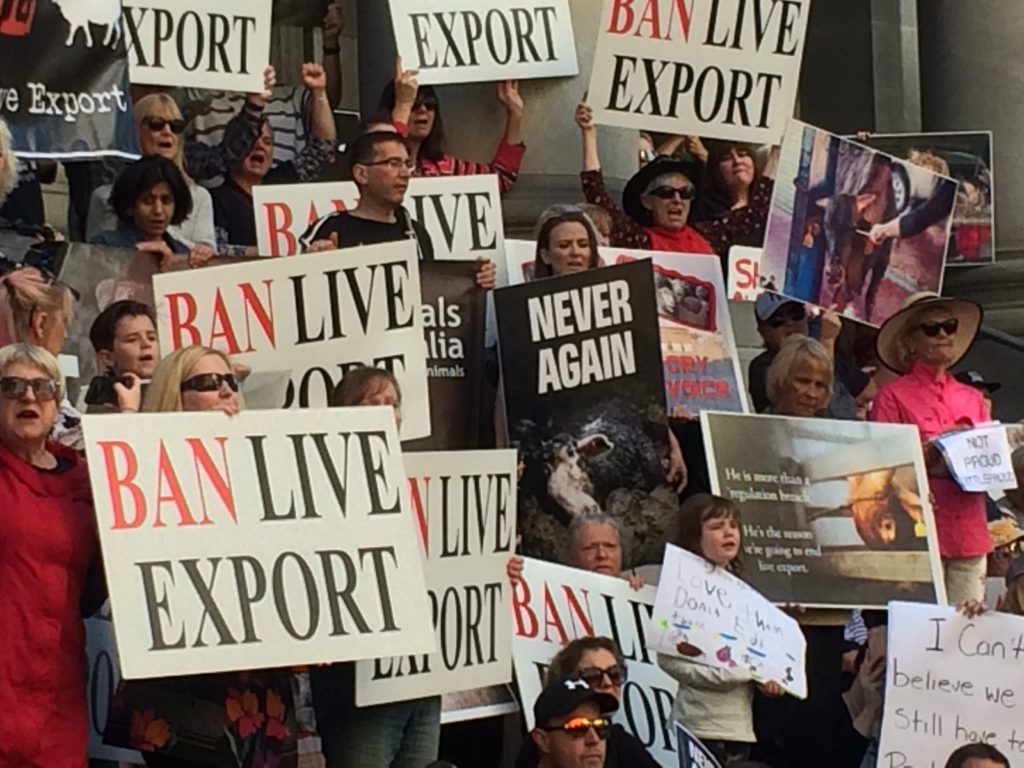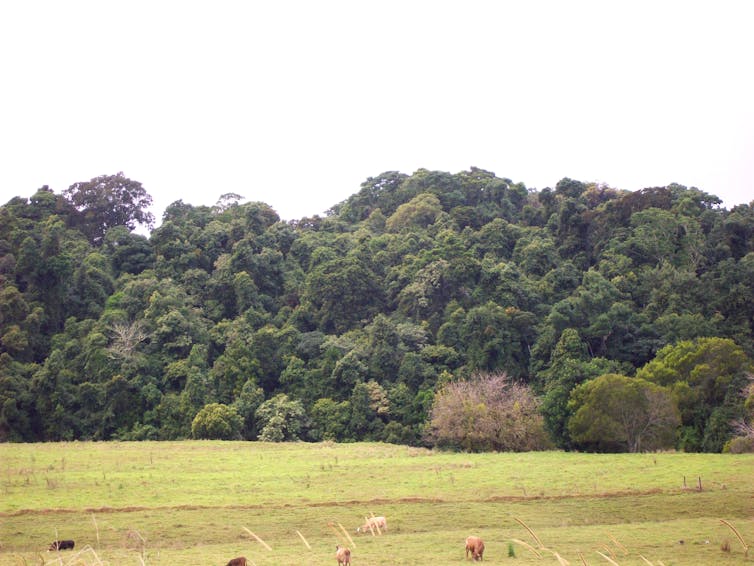The end of a government-imposed moratorium on live sheep exports from Australia to the Middle East this week has ignited fears of a possible resumption of the live sheep trade from Port Adelaide, with a community rally to take place in the city this Sunday, 29th September.
On Monday, the live sheep trade to the Middle East resumed in West Australia, the state behind nearly 90% of live sheep exports. Approximately 57,000 sheep were loaded on to the Al Messilah, a 39-year-old former car-carrier on which more than 3000 sheep perished in 2016.
Live exporter, Rural Export and Trading WA (a trading partner of disgraced exporter, Emanuel Exports, currently facing cruelty charges in WA) is behind this first post-moratorium shipment, with the animals bound for destinations in Kuwait and the United Arab Emirates.
With live sheep once again being shipped from Fremantle, the spotlight is back on Port Adelaide as the second major Australian port for the highly controversial trade. Concerned community members will meet at the rotunda in Elder Park at 11am on Sunday to hear several speakers, including RSPCA South Australia’s Animal Welfare Advocate Dr Rebekah Eyers, before marching along King William Street to Victoria Square.

RSPCA South Australia is calling for a strategic phasing out of the State’s participation in the trade.
“We urge our State Government to assist the few South Australian farmers whose sheep may be enduring these horrific journeys, to exit the trade and move toward a more sustainable future,” Dr Eyers said.
“For the people and the businesses of South Australia, we must take a stand and restore our reputation as a progressive, compassionate State.”
The last live export ship to load cattle and sheep at Port Adelaide was the Al Shuwaikh, which departed in May 2018, (via Fremantle) bound for Kuwait and Qatar. The exporter responsible for the ship, Emanuel Exports, was at the centre of the 2017 footage of sheep virtually cooked alive aboard live export ships travelling from Australia to the Middle East.
Public outcry at the scenes captured in that footage prompted the federal Department of Agriculture to impose the four month moratorium. A whistle-blower on-board the Emanuel Exports vessel the Awassi Express filmed packed pens of Australian sheep suffering and dying from heat stress during five routine voyages to the Middle East.
Apart from the moratorium, the Federal Government also set up inquiries into both the live export industry and its own Department of Agriculture, in its role as regulator of the live export trade.
In the latest developments:
- RSPCA Australia has called for an urgent review into the management of the Exporter Supply Chain Assurance System (ESCAS) following the recent release of footage showing Australian cattle once again suffering horrific handling and slaughter practices in Indonesia.
- RSPCA Australia’s attempts, under FOI laws, to obtain footage and unedited reports from the government’s Independent Observers assigned to monitor shipments since the Awassi Express exposé continue to be resisted.
- Parliament has passed a bill to establish an independent Inspector General to oversee the Department of Agriculture’s regulation of live exports (a key recommendation of the 2018 Moss Review).
Dr Eyers said the resumption of live sheep exports this month ignores evidence that shows exports to the Middle East during September and October are arguably just as dangerous as those occurring at the start of the northern summer period.
“By the end of September, having experienced months of below 20-degree temperatures in South Australia, our sheep (and potentially cattle) are acclimatised to cool weather.
“So shipping them across the equator and into temperatures in the high 30s and low 40s, in cramped conditions, with poor ventilation, surrounded by their own effluent, is once again risking large-scale suffering and death from heat stress,” Dr Eyers said.
“This is why, in our submission to the Department of Agriculture, we were among numerous individuals and organisations including the Australian Veterinary Association calling for October to be included in the moratorium.”
While acknowledging that the establishment of the Inspector-General is a positive move, providing much needed oversight of the Government regulator, Dr Eyers stressed that oversight itself does not fix the problem.
“Sending animals on sea journeys lasting three to five weeks, to destinations with poor animal welfare standards, cannot ever be made humane.”
Live Export Rally: Sunday 29 September 11:00am Rotunda in Elder Park, Adelaide








